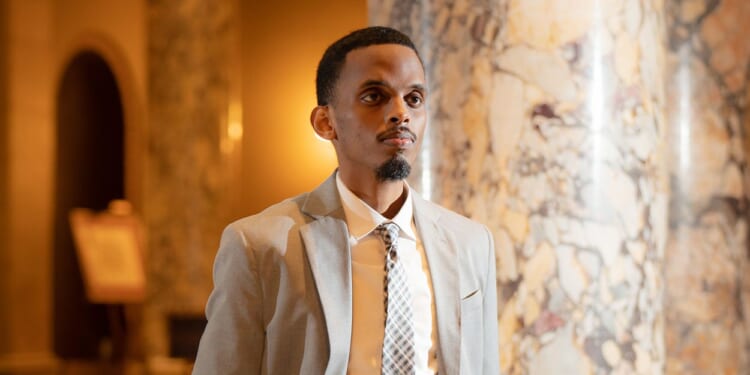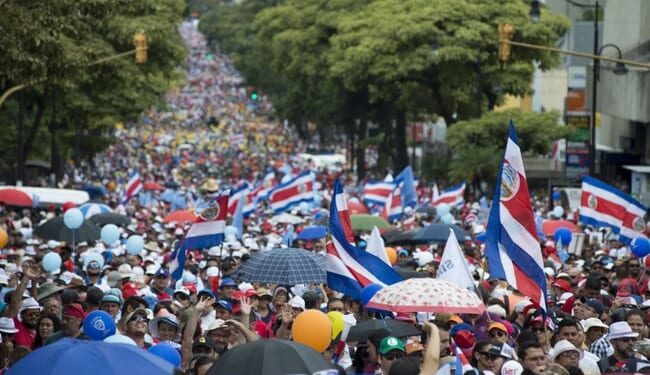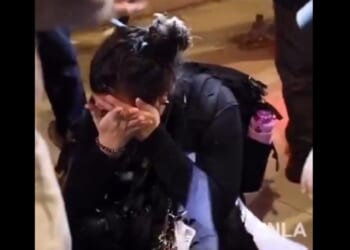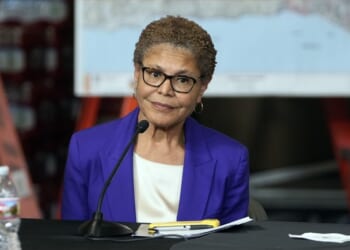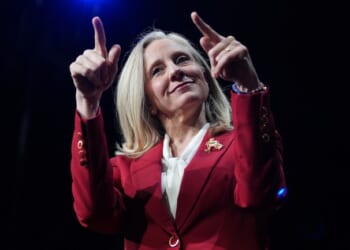Minneapolis voters will cast their ballots for mayor Tuesday, but the ranked-choice voting system they will use makes it unlikely Americans will know who won the race on Election Day.
While four candidates took part in debates, the race seems likely to come down to two: current Mayor Jacob Frey and democratic socialist Omar Fateh.
A Minnesota insider who spoke to The Daily Signal on condition of anonymity said that while Minnesota is about evenly split between Republicans and the state’s version of the Democratic Party—the Democratic-Farmer Labor Party—in Minneapolis, “there’s only two parties, the DFL and the Democratic Socialists.”
Fateh won the DFL endorsement in a July convention, but Frey’s campaign successfully appealed the decision, and the DFL revoked the endorsement in August.
1. Jacob Frey
Frey has served as Minneapolis’ mayor since 2018. A practicing Reform Jew, Frey was born and raised in the Virginia suburbs outside Washington, D.C. He won election to the Minneapolis City Council in 2013 and served one term before becoming mayor.
During Frey’s tenure, Minneapolis transitioned from a “weak mayor” system (with a stronger city council) to a “strong mayor” system, giving Frey veto power.
Frey vetoed eight pieces of legislation in 2024, notably a resolution calling for the U.S. to stop funding Israel after its response to the Oct. 7, 2023, Hamas terrorist attacks; and a minimum wage for ride share drivers, a proposal Fateh supported.
Frey is running on opposing the Trump administration, particularly on LGBTQ issues, abortion, and immigration enforcement. He pledges to build 12,000 new housing units. He touts a 33% decrease in unsheltered homelessness since 2020, though he supports “harm reduction” programs that do not require recipients to get clean from drug abuse.
A pro-abortion activist, Frey served as a model for a Planned Parenthood campaign in February 2020.
2. Opposing Police Abolition
Following the death of George Floyd in May 2020, protesters demanded the abolition of police. President Donald Trump faulted Frey for insufficiently responding to that summer’s violent riots. While Frey supported reforms to emphasize non-police responses, he warned that calls to abolish the police led to crime spikes.
During a debate Monday, Frey called for more police, even while celebrating his program to build out non-police “violence interrupters” in the city.
He said Minneapolis shootings had decreased “because of work that we have done in partnership with community, working with moms and grandmoms to sort out difficult situations before they arise.”
3. Omar Fateh
Like Frey, Fateh grew up in the Washington, D.C., area. He ran for school board in Fairfax County, Virginia, in 2015. The son of Somali immigrants, he became the first Somali American and first Muslim to serve in the Minnesota Senate after winning a 2020 election.
A self-declared democratic socialist and a member of the Democratic Socialists of America, Fateh is running on a platform of raising taxes “to ensure the wealthy pay their fair share.” He champions “environmental justice.”
Fateh has taken credit for the Minnesota State Promise Plan, which covers college tuition for students from households that make less than $80,000 per year, and for a bill to secure a minimum wage and worker protections for Uber and Lyft drivers.
Critics faulted him for using aggressive tactics to pass the rideshare bill, as the Minneapolis Star-Tribune reported. At the end of the 2024 legislative session, Fateh went missing from the Senate for more than 10 hours. Since Democrats controlled the chamber by a single vote, Fateh’s absence stalled business until legislators reached a deal on the rideshare bill.
“People were angry with him, but he played a smart card,” Sen. Jim Abeler, a Republican who sits next to Fateh on the Senate floor, told the Star-Tribune.
“This guy’s a bare-knuckle fighter,” the Minnesota insider told The Daily Signal.
The state senator seems to be leveraging the influence of the small but influential Somali Muslim community in Minneapolis. The Minnesota insider described the Somali community as a “very important voting bloc” that is “not the majority” of the city but extremely influential. Members of this community reportedly went to train with the terrorist group al Shabaab in Somalia and the Islamic State, but law enforcement has partnered with the community to oppose radicalism.
Fateh reportedly sent an email to the DFL asking about the process of leaving the party in November 2023. He had reportedly been concerned about a DFL lobbyist and donor who quoted the late Israeli Prime Minister Golda Meir in the wake of the Oct. 7 attacks. The post quoted, “Peace will come when the Arabs love their children more than they hate us.”
Fateh reportedly attacked his fellow lawmakers for failing to denounce the “incredibly vile” post.
The Minnesota insider told The Daily Signal Fateh has “established himself as the Somali leader alongside Rep. Ilhan Omar,” a member of Congress known for her leftist views.
Fateh’s campaign found graffiti on an office window reading, “Somali Muslim—this warning is no joke.” Authorities are reportedly investigating it as a “terroristic threat.”
4. Fateh’s Police Policy
In 2020, Fateh supported an ultimately unsuccessful amendment to Minneapolis’ charter that would have replaced the city’s police force. Fateh’s 2020 campaign website stated his desire to “dismantle and replace MPD,” the Minneapolis Police Department.
His current campaign website, however, calls for “bold and transformative approaches to public safety” and “public safety solutions that supplement traditional policing.” He has repeatedly cited a New York University Law School study in conjunction with Minneapolis, finding that about 47% of calls to Minneapolis police could be diverted to an alternate response.
Fateh has called for investments in “a well-functioning Civil Rights Department and independent oversight of MPD, aiming to “build a lawful and trustworthy police force.”
During a September debate, Fateh pledged to “honor the city charter’s requirement for at least 700 sworn officers.”
5. Ranked-Choice Voting
Minneapolis adopted ranked-choice voting in 2006.
Fifteen candidates are on the mayoral ballot, and voters will get to select their first, second, and third choices.
On election night, officials use ballot counting machines to report the results of the first-choice votes. If no candidate receives 50% plus one vote, officials will proceed to count the second and third choices, a process that will likely take multiple days.
Officials count each candidate’s current vote total, then eliminate the candidates with no mathematical possibility of winning. If a voter selected one of these eliminated candidates as his first choice, the officials will consider his second or third choices.
Fateh has allied with two other candidates, Rev. DeWayne Davis and Jazz Hampton, asking his voters to select one or both of them as second and third choices, aiming to block Frey’s reelection.
Conservatives find themselves without a good option.
Jeff Evans, CEO of the Minnesota Family Council, told The Daily Signal that conservative voters face “a poverty of solutions that actually work for Minnesota’s families and communities,” and he lamented the “downward spiral of progressivism.”
Neither the Fateh nor Frey campaigns responded to The Daily Signal’s request for comment.

